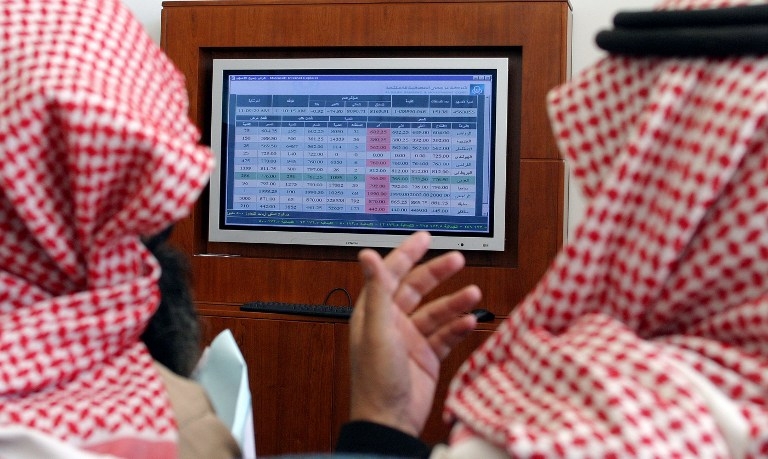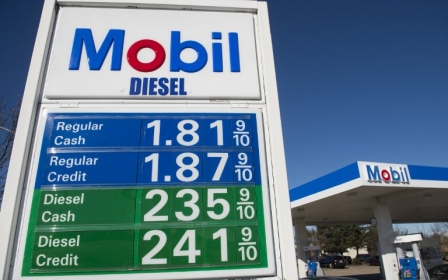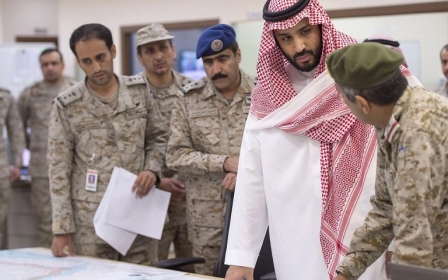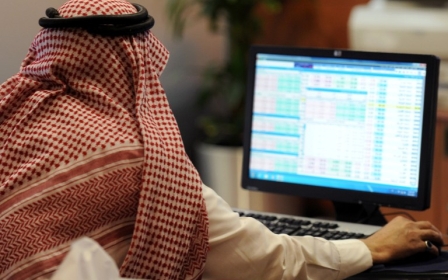Saudi considers taking state-owned oil giant public

Saudi Arabia is considering issuing shares in state-owned oil giant Saudi Aramco, the kingdom's powerful deputy crown prince told The Economist in a rare interview published on Thursday.
"That is something that is being reviewed, and we believe a decision will be made over the next few months," Mohammed bin Salman was reported as telling the magazine this week. "Personally I'm enthusiastic about this step."
The 30-year-old prince, who has become a key player in Saudi's leadership since his father, King Salman, ascended the kingdom's throne last January, said taking the company public would be in the interests of the market, the company and greater transparency.
Aramco reportedly confirmed on Friday that the potential initial public offering was under consideration, Bloomberg reported.
However, a source close to the company's board told the Financial Times that the prince's comments were "a big surprise" and the strategy had never been discussed.
The deputy crown prince chairs the Supreme Council, which has overseen Aramco, the world's largest oil company in terms of production and exports, since the company was separated from the oil ministry last May.
The prince's comments come a week after the kingdom reported a record budget deficit of $98bn for 2015.
It projected a shortfall of $87bn in this year's budget, with crude prices currently around $32 a barrel, down from more than $100 early in 2014, largely as a result of Saudi and other key OPEC members' policy to continue pumping, despite a global oil oversupply, as it seeks to push other players like US shale producers out of the market.
In an unprecedented departure from its decades-old generous welfare system, Riyadh's budget last week announced rises in fuel, electricity, water and other prices.
But the prince told The Economist the kingdom is "far" from an economic crisis, because it still has ample reserves and growing non-oil revenues.
Why go public?
Analyst say that going public with Aramco could give Saudi access to cash flow at a time when the kingdom may foresee oil prices - and therefore revenue - remaining low for years.
Most recently, the row between Saudi and oil-producer Iran has dimmed prospects of an agreement needed to cut oil production and raise prices.
"The introduction of Aramco will be a major event that will pull the attention of investors towards this market and bring liquidity to the kingdom," said Christopher Dembik, of Saxo Bank.
Abhishek Deshpande, an analyst at Natixis, said talk of an IPO shows the kingdom's determination to address the economic consequences of low oil prices.
"It could be a very big step forward and also means oil prices will stay low for a while," Deshpande said.
Andrew Hammond, a recent policy fellow with the European Council on Foreign Relations, told Middle East Eye that the idea to issue Aramco shares has been around for a while, and follows the same strategy the kingdom used with state-owned Saudi Arabia Basic Industries Corporation, a chemical manufacturer, and Saudi Electricity, which are both traded on Tadawul, the Saudi stock exchange.
"It's an effort to redistribute some of the wealth," Hammond said. "The interesting bit is the idea of opening up the accounts - the ruling family have always siphoned off a part of its revenues for themselves."
In his comments, the prince suggested that the move would "counter corruption, if any, that may be circling around Aramco".
"This is all about bringing transparency to Saudi Aramco," a Saudi official also told the Financial Times.
The kingdom has adopted a policy of selling shares in all major state-owned firms.
Last year for the first time, Saudi Arabia's stock exchange allowed foreign banks, brokerage houses, fund managers and insurance companies to invest directly on the Tadawul All-Shares Index (TASI), provided they meet the requirements.
In late 2014, the kingdom's largest initial public offering raised $6bn for Saudi Arabia's National Commercial Bank.
Analysts expected the kingdom would make only a small stake available to the public.
"It would generate some cash... while at the same time put a price tag on a company that undoubtedly would be one of the biggest in the world," said Ole Hansen, of Saxo Bank.
New MEE newsletter: Jerusalem Dispatch
Sign up to get the latest insights and analysis on Israel-Palestine, alongside Turkey Unpacked and other MEE newsletters
Middle East Eye delivers independent and unrivalled coverage and analysis of the Middle East, North Africa and beyond. To learn more about republishing this content and the associated fees, please fill out this form. More about MEE can be found here.




